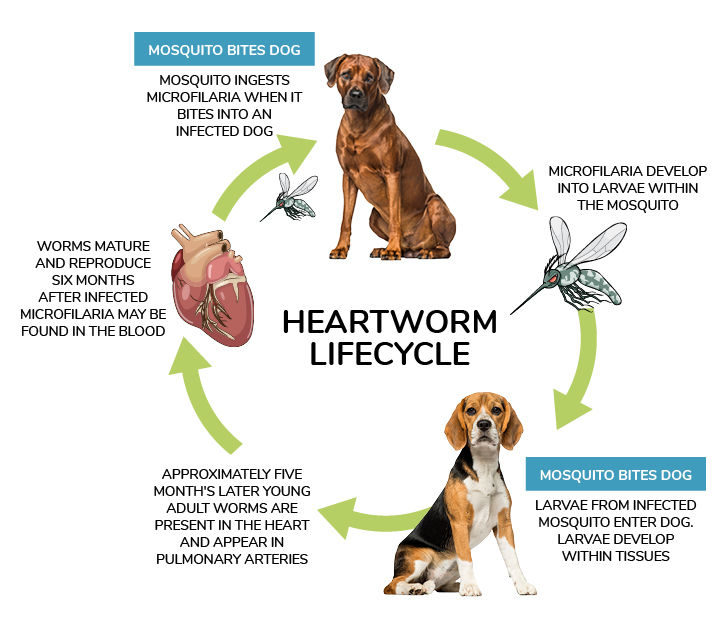
Heartworm disease is a serious and potentially fatal condition that affects dogs, cats and up to 30 other species of animals. It is caused by parasitic worms (heartworms) living in the major blood vessels of the lungs and heart.
In dogs, heartworms can cause a variety of medical problems including damage to the lungs, heart, liver, and kidneys. Heartworms are transmitted via the bit of an infected mosquito. Even if your pet only goes outside to potty or walk to the care for a ride, they are still at risk!
What is involved in heartworm prevention?
Preventing heartworm is easy and it starts at your pet’s first visit. Puppies are started on a heartworm prevention as young as 8 weeks and we recommend giving it once a month, all year round. Prevention comes in yummy treat form and there are some topical options as well. They even make preventatives that are all-in-one and provide protection from heartworm, fleas and ticks.
How is my pet tested for heartworm?
Heartworm testing begins at 1 year of age and then bi-annually after that. Testing is easy and involves taking a small sample of your pet’s blood. The test typically also includes testing for tick born diseases such as lyme. It can be done at their annual visit or part of a large bloodwork panel if there are other concerns.
Did you know?
Symptoms of heartworm disease may not be present in early stages of infection. Many dogs show few if any symptoms in the early stages of heartworm disease. This makes heartworm testing even more important since a dog may be sick but show no symptoms. As the infection persists, clinical signs like coughing, reluctance to exercise, fatigue after activity, decreased appetite, and weight loss may appear. Patients should not be taking heartworm prevention if they have not been tested as it can cause health issues.
Need to schedule your pet’s exam and test? Call or text us at 856-740-3700 or request an appointment via our app.
To learn more about heartworm disease, head to heartwormsociety.org.

